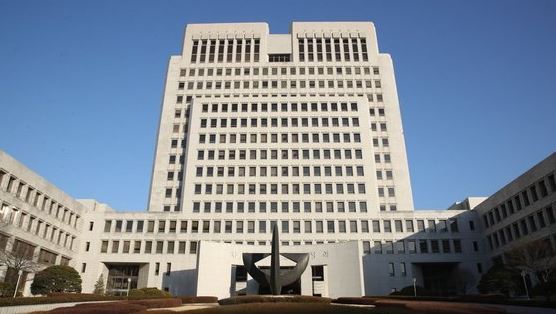Police records can’t be used as evidence without defendant’s approval: court
By Kim So-hyunPublished : Nov. 29, 2019 - 14:22
The Supreme Court ruled that police records of a defendant’s statements cannot be used to prove guilt unless the defendant agrees to the records being used as evidence.
The top court said Friday that it reversed a lower court ruling that sentenced a defendant to six months in prison for violating the law on community credit cooperatives, and sent the case back to the Daegu District Court.
The defendant was indicted for allegedly giving 500,000 won in cash each to two voters and asking for their support when he was running for director of a community credit cooperative in Daegu in 2016.
The top court said Friday that it reversed a lower court ruling that sentenced a defendant to six months in prison for violating the law on community credit cooperatives, and sent the case back to the Daegu District Court.
The defendant was indicted for allegedly giving 500,000 won in cash each to two voters and asking for their support when he was running for director of a community credit cooperative in Daegu in 2016.

Lower courts sentenced him to six months in jail.
The Supreme Court, however, sent the case back to the Daegu District Court, saying the lower courts admitted and used as evidence police records of statements by the suspect and a witness even though they were not admissible as evidence.
According to the law on criminal procedures, which sets forth the protocol for the interrogation of criminal suspects, records written by investigative institutions other than the prosecution are admissible as evidence only if the defendant, either directly or through a defense counsel, admits to the contents of the records.
If a person who is not a defendant mentions someone else’s statements during a trial, they are admissible as evidence only if the person who made the original statements is unable to testify because of illness or death, if the person’s whereabouts are unknown, or if circumstances lend special credibility to the testimony.
The top court said the defendant has denied the contents of the police records of his statements, which the prosecutor submitted as evidence to the court where his first trial took place.
Testimony by a witness surnamed Kwon that he heard from one of the voters that he had received cash from the defendant is also not admissible as evidence because the voter consistently denies receiving the money, the Supreme Court said.
By Kim So-hyun (sophie@heraldcorp.com)







![[KH Explains] Hyundai's full hybrid edge to pay off amid slow transition to pure EVs](http://res.heraldm.com/phpwas/restmb_idxmake.php?idx=644&simg=/content/image/2024/04/18/20240418050645_0.jpg&u=20240419100350)







![[From the Scene] Monks, Buddhists hail return of remains of Buddhas](http://res.heraldm.com/phpwas/restmb_idxmake.php?idx=652&simg=/content/image/2024/04/19/20240419050617_0.jpg&u=20240419175937)

![[KH Explains] Hyundai's full hybrid edge to pay off amid slow transition to pure EVs](http://res.heraldm.com/phpwas/restmb_idxmake.php?idx=652&simg=/content/image/2024/04/18/20240418050645_0.jpg&u=20240419100350)

![[Today’s K-pop] Illit drops debut single remix](http://res.heraldm.com/phpwas/restmb_idxmake.php?idx=642&simg=/content/image/2024/04/19/20240419050612_0.jpg&u=)